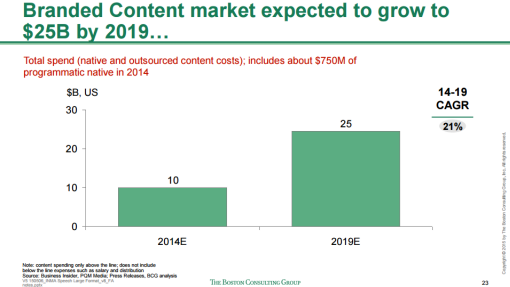Launch of Creating the Future of PR – shaping an exceptional future for the industry
Advanced Human Technologies Group has just launched Creating the Future of PR, a publication that looks at how the Public Relations industry can create an exceptional future for itself and its clients in a fast-changing world.

In my article Join Us in Creating the Future of PR I frame the context for the launch of the publication:
The fundamental capabilities of PR professionals are more relevant than ever in our intensely networked world. Arguably, PR should be at the center of the marketing universe, since it is better able than any other discipline to deal with a world driven by relationships, fueled by connectivity, social, mobile, and power shifting to the individual.
The big question is: will the PR industry seize the immense opportunity before it?





 Source:
Source: 